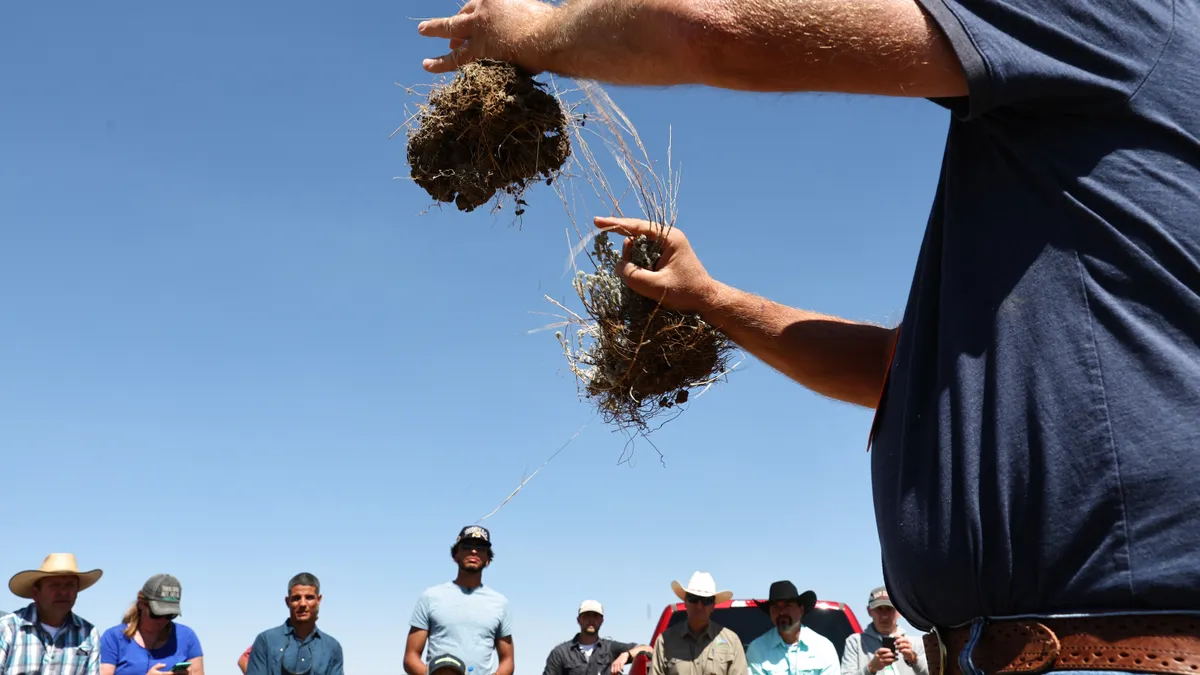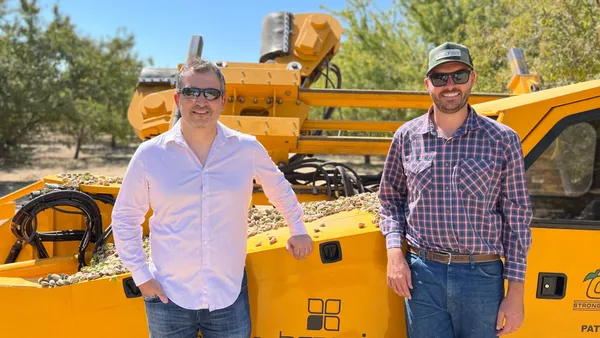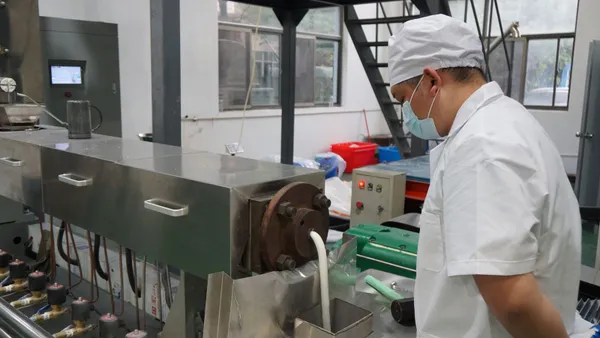Dive Brief:
- Sustainable farming practices are necessary to reduce carbon intensity levels, but the entire agriculture value chain must take action to meet global zero emissions targets, according to a new McKinsey & Company agriculture report.
- Recommendations include reducing food loss and waste, shifting consumer diets away from meat and adapting how arable land is used. McKinsey & Co. also identified 28 ways to support decarbonization on farmland.
- The findings in the report can guide food and agriculture companies as they transition to increased sustainability and work toward achieving the Paris Agreement’s 1.5-degree Celsius target to slow global warming.
Dive Insight:
In recent years, conversations about sustainability have focused on agriculture’s effects on nature, including the benefits and tradeoffs of growing food at a global scale. Meanwhile, costs and a lack of incentives are preventing farmers from adopting less carbon-intensive practices.
But to truly make a difference in emissions, consumers and stakeholders from all industries must make a concerted effort to change everything from diets to the way land is used.
About 30% of the world’s food is lost or wasted each year, contributing to emissions and food insecurity, according to the report. To achieve reduction targets, McKinsey & Co. said “we will need to better connect supply chains, improve preservation, adapt purchasing habits, and make more productive use of food loss or waste.”
Ruminant animals and land-use changes also contribute to emissions, according to the report. Plant-based options emit only 12% of the greenhouse gasses that come from cattle including methane. Forest restoration and improved practices have the potential to reverse emissions that come from the clearing of land for crops, feed production or grazing.
Farmers can also make impactful changes to support carbon intensity reduction while creating value for the industry. They include increased heat stress management, low or no tillage and the use of cover crops, among other low cost options.
All 28 measures have an annual emissions reduction value of 2.2 gigatons of carbon dioxide.
Despite progress, McKinsey & Co. said more action is needed. The company recommended financial incentives, improved tracking and traceability and research and investment to reduce adoption costs.
“A more sustainable future for agriculture that feeds a growing planet while maintaining the livelihoods of farmers is feasible,” the company said. “And industry players, policy makers and investors can accelerate the path to the future while enabling their own growth.











